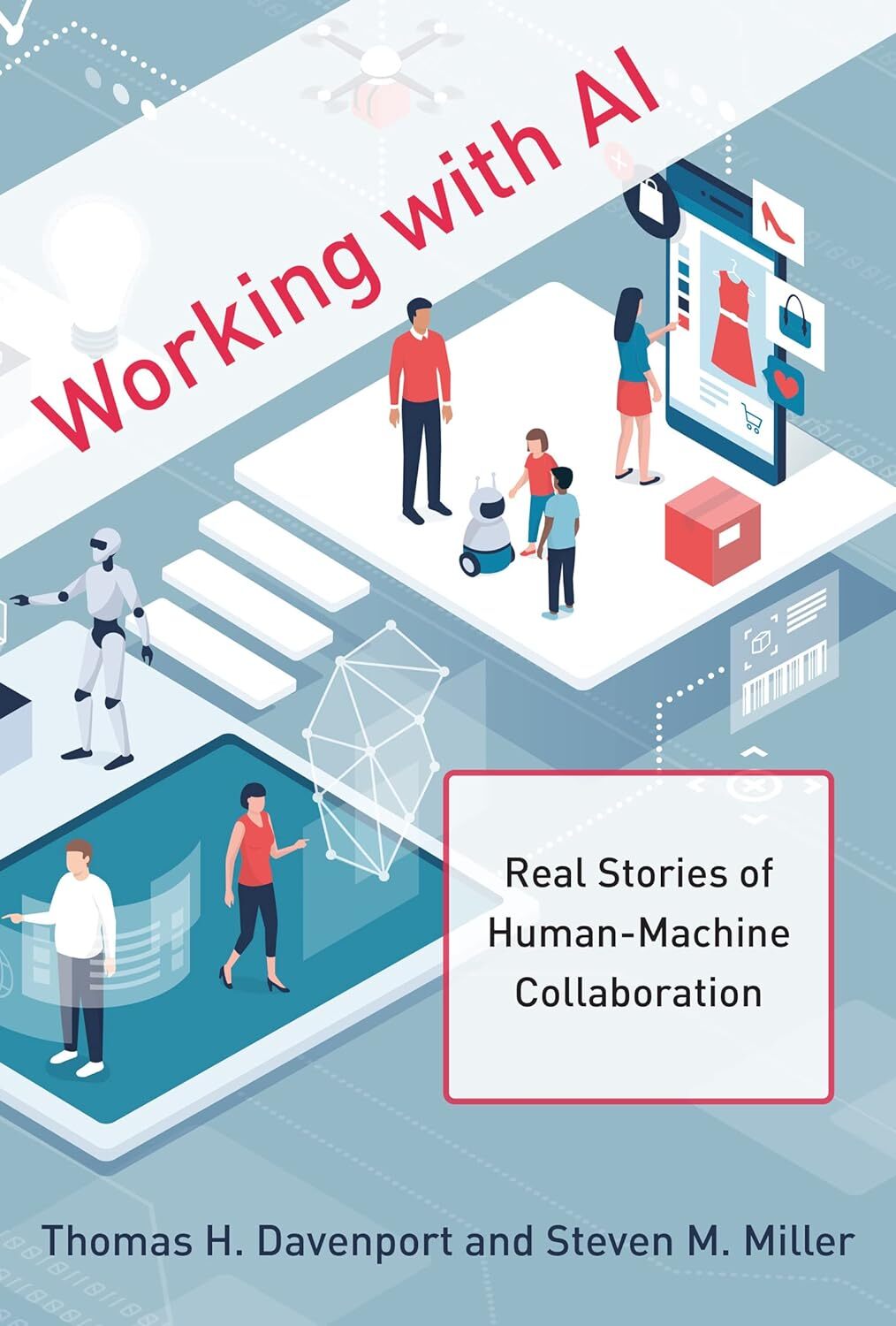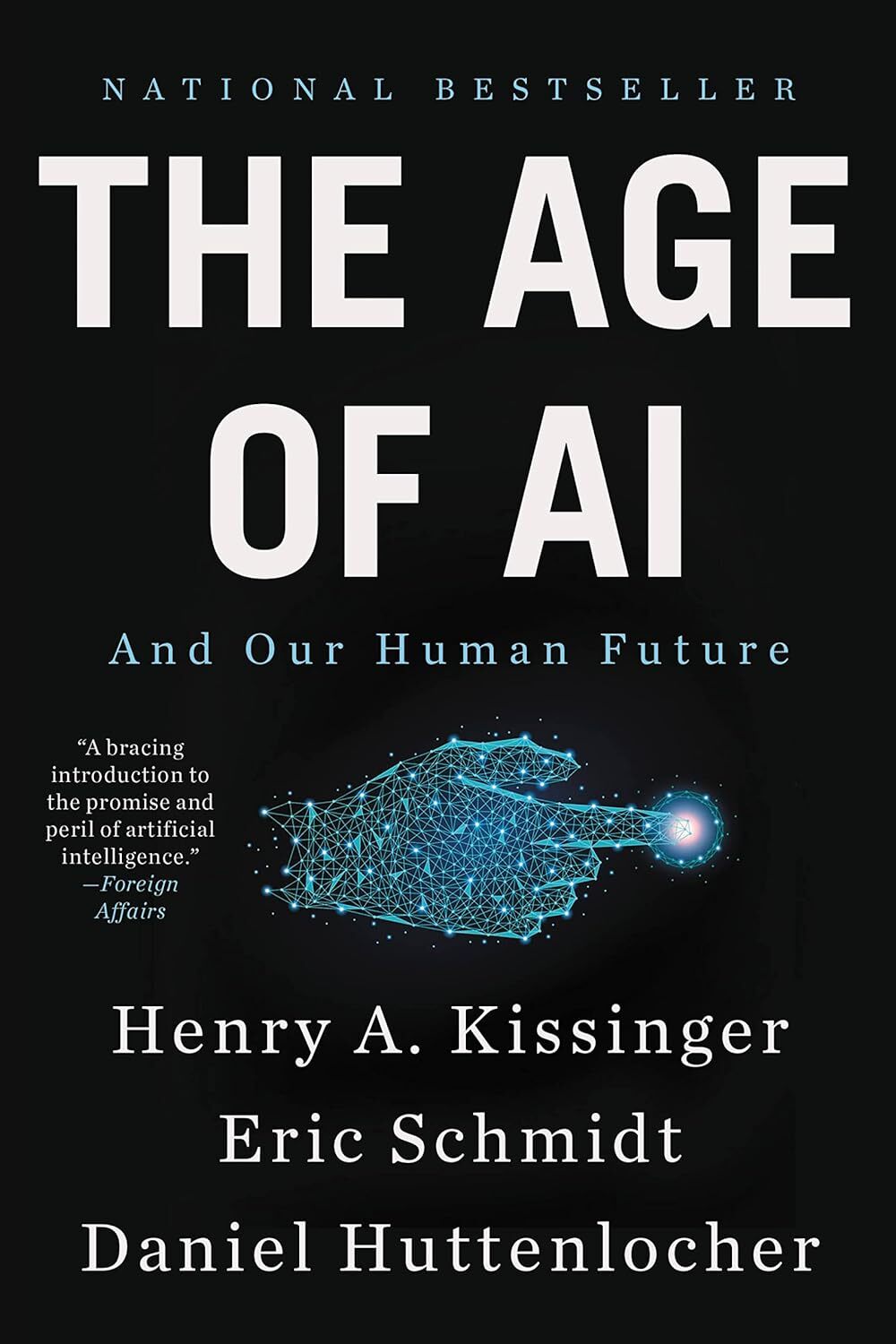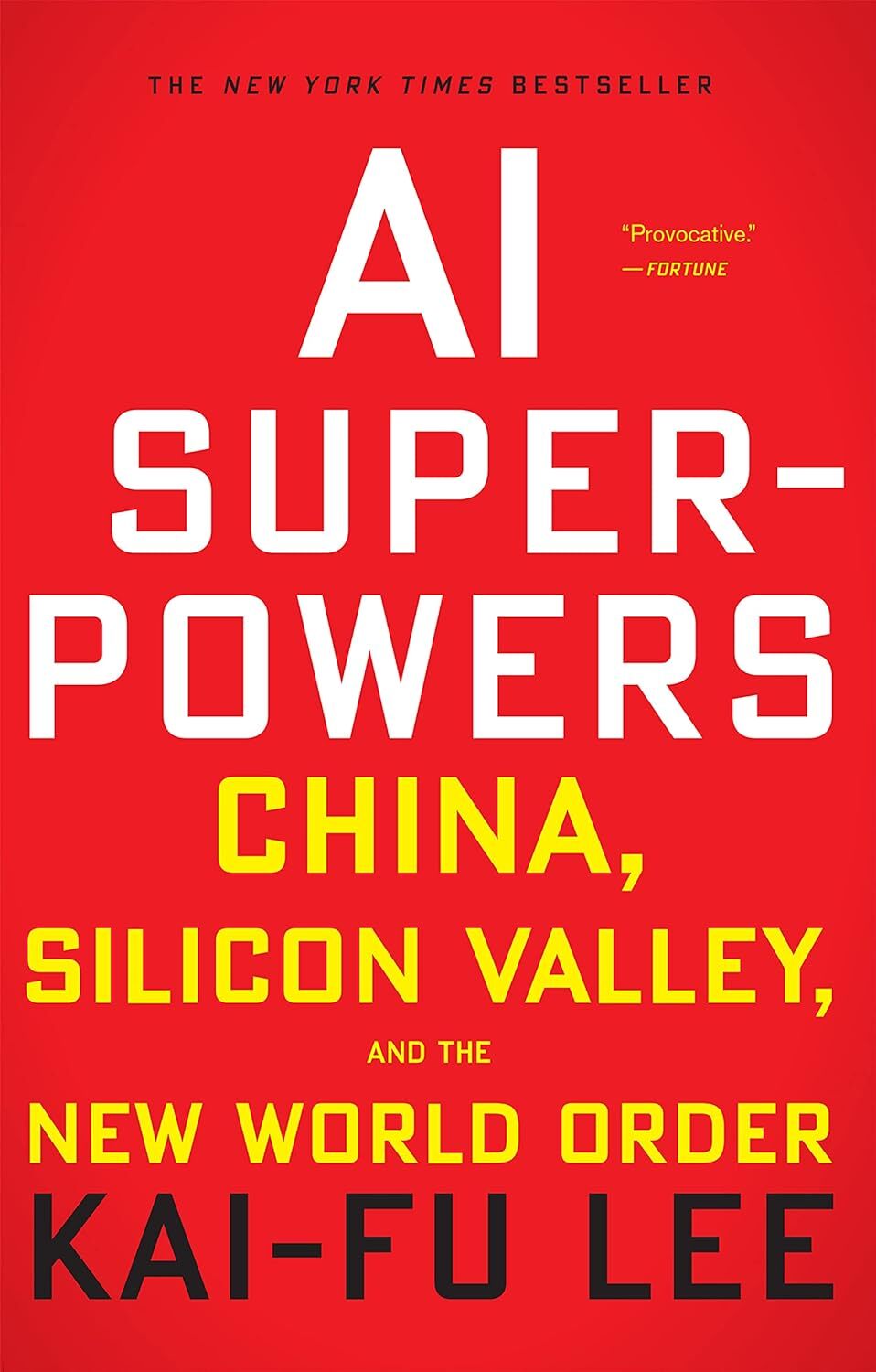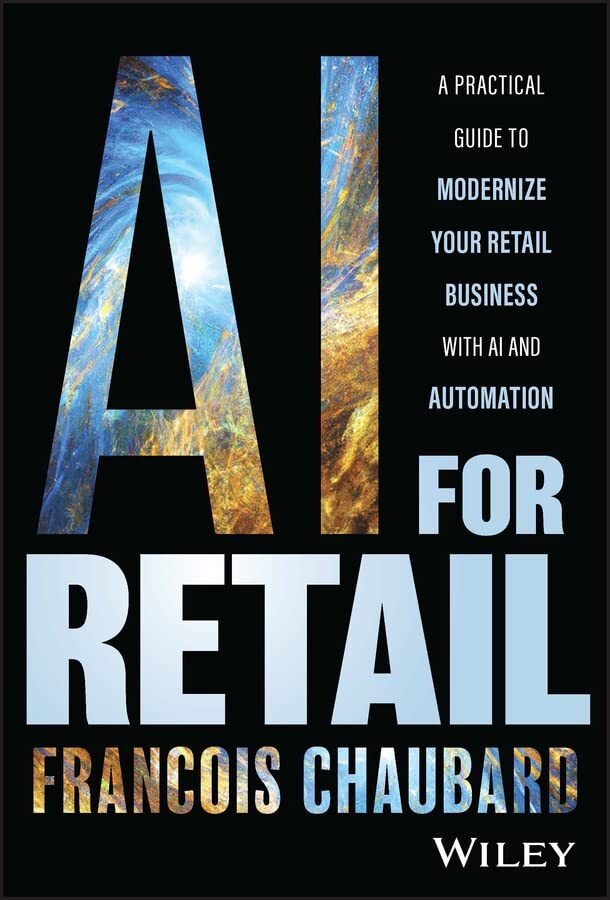- Published on
Top 5 Books for AI. How to lead with resilience utilizing AI (Artificial Intelligence)
In an ever-evolving world where challenges arise with unprecedented frequency, leaders are increasingly seeking resilience as a key trait to navigate complexities. Surprisingly, one source of inspiration for cultivating resilience can be found in the study of artificial intelligence (AI). As leaders grapple with uncertainties and disruptions, delving into the principles and dynamics of AI offers profound insights into building the resilience necessary for effective leadership.
AI operates in an environment of constant change and adaptation. Similarly, leaders facing dynamic and unpredictable scenarios can draw parallels from AI's ability to adjust strategies and responses based on real-time data. Embracing a mindset that perceives change as an inherent part of the leadership journey can empower individuals to proactively adapt and thrive in volatile environments. By studying AI algorithms that continuously learn and evolve, leaders can integrate this adaptability into their decision-making processes, fostering resilience in the face of unforeseen challenges.
AI operates in an environment of constant change and adaptation. Similarly, leaders facing dynamic and unpredictable scenarios can draw parallels from AI's ability to adjust strategies and responses based on real-time data. Embracing a mindset that perceives change as an inherent part of the leadership journey can empower individuals to proactively adapt and thrive in volatile environments. By studying AI algorithms that continuously learn and evolve, leaders can integrate this adaptability into their decision-making processes, fostering resilience in the face of unforeseen challenges.
"Unmasking AI" offers valuable insights into the inner workings of artificial intelligence, providing readers with a deeper understanding of AI's impact on society, ethics, and technology. It equips readers with knowledge to navigate the complexities of AI, fostering a more informed perspective on this transformative technology.
Readers can benefit by gaining clarity on the ethical considerations surrounding AI, understanding potential societal implications, and becoming aware of the challenges and opportunities in the rapidly evolving field. The book may also provide practical insights for professionals and enthusiasts looking to engage with AI responsibly and effectively.
Readers can benefit by gaining clarity on the ethical considerations surrounding AI, understanding potential societal implications, and becoming aware of the challenges and opportunities in the rapidly evolving field. The book may also provide practical insights for professionals and enthusiasts looking to engage with AI responsibly and effectively.
Readers can benefit by gaining clarity on the ethical considerations surrounding AI, understanding potential societal implications, and becoming aware of the challenges and opportunities in the rapidly evolving field. The book may also provide practical insights for professionals and enthusiasts looking to engage with AI responsibly and effectively.
In addition, "Working with AI" may help readers understand the skill sets necessary to thrive in AI-driven environments, offering a roadmap for career development. It could explore real-world case studies, showcasing successful AI implementations and lessons learned. The book may also address the importance of continuous learning in the context of AI advancements, empowering individuals to stay relevant in their professions.
In addition, "Working with AI" may help readers understand the skill sets necessary to thrive in AI-driven environments, offering a roadmap for career development. It could explore real-world case studies, showcasing successful AI implementations and lessons learned. The book may also address the importance of continuous learning in the context of AI advancements, empowering individuals to stay relevant in their professions.
"The Age of AI" delves into the transformative era shaped by artificial intelligence, examining its profound impact on various aspects of our lives. From exploring the ethical dimensions and societal implications to dissecting the technological advancements, the book provides a comprehensive overview of AI's evolution. Readers can expect a deep dive into the historical context, current applications, and future possibilities, fostering a nuanced understanding of the role AI plays in shaping the world.
Moreover, "The Age of AI" goes beyond the technical aspects, offering insights into the cultural, economic, and political ramifications of this technological wave. It serves as a guide for readers seeking to navigate the complexities of an AI-driven world, encouraging critical thinking about the opportunities and challenges that lie ahead. With a balanced approach, the book aims to equip readers with the knowledge needed to participate meaningfully in discussions about the role of AI in our rapidly changing global landscape.
Moreover, "The Age of AI" goes beyond the technical aspects, offering insights into the cultural, economic, and political ramifications of this technological wave. It serves as a guide for readers seeking to navigate the complexities of an AI-driven world, encouraging critical thinking about the opportunities and challenges that lie ahead. With a balanced approach, the book aims to equip readers with the knowledge needed to participate meaningfully in discussions about the role of AI in our rapidly changing global landscape.
"AI Superpowers: China, Silicon Valley, and the New World Order" by Kai-Fu Lee provides a compelling analysis of the global AI landscape, focusing on the competition between China and Silicon Valley. The book explores China's rapid rise as a major player in artificial intelligence, examining its strategies, investments, and unique advantages. It sheds light on the distinct approaches taken by China and the United States in AI development, offering readers a glimpse into the potential implications for the new world order.
Kai-Fu Lee, a prominent figure in the AI industry, not only delves into the technological aspects but also addresses the societal impact of AI on jobs and economies. The book presents thought-provoking insights into the ethical considerations surrounding AI deployment and the role of governments and businesses in shaping the future. It serves as a comprehensive guide for those interested in understanding the geopolitical dynamics of AI and its far-reaching consequences on the global stage.
Kai-Fu Lee, a prominent figure in the AI industry, not only delves into the technological aspects but also addresses the societal impact of AI on jobs and economies. The book presents thought-provoking insights into the ethical considerations surrounding AI deployment and the role of governments and businesses in shaping the future. It serves as a comprehensive guide for those interested in understanding the geopolitical dynamics of AI and its far-reaching consequences on the global stage.
"AI for Retail" explores the transformative applications of artificial intelligence within the retail industry. The book delves into how AI technologies, such as machine learning and data analytics, are revolutionizing various aspects of retail operations. From enhancing customer experiences through personalized recommendations to optimizing supply chain management and inventory forecasting, the book offers practical insights into how AI is reshaping the retail landscape.
Moreover, "AI for Retail" addresses the strategic advantages gained by retailers who effectively leverage AI. It discusses the role of AI in improving decision-making processes, driving operational efficiencies, and gaining a competitive edge in the market. With real-world case studies and examples, the book provides a valuable resource for retail professionals, business leaders, and anyone interested in understanding how AI is driving innovation and transformation in the retail sector.
Moreover, "AI for Retail" addresses the strategic advantages gained by retailers who effectively leverage AI. It discusses the role of AI in improving decision-making processes, driving operational efficiencies, and gaining a competitive edge in the market. With real-world case studies and examples, the book provides a valuable resource for retail professionals, business leaders, and anyone interested in understanding how AI is driving innovation and transformation in the retail sector.
Diversify Data
AI often relies on diverse datasets to make informed decisions. Leaders can emulate this approach by cultivating a broad understanding of various disciplines, perspectives, and experiences. By incorporating a diverse range of inputs into their decision-making processes, leaders can enhance their resilience by drawing upon a wealth of insights. This interdisciplinary approach mirrors the diverse data points that AI systems utilize to optimize performance. Leaders who actively seek diverse perspectives create a resilient foundation that enables them to navigate complex situations with a well-rounded and informed outlook.
Moreover, AI's capacity to process vast amounts of information swiftly can inspire leaders to cultivate efficient decision-making skills. In a fast-paced world, timely and informed decisions are crucial for resilience. Leaders who study AI can adopt streamlined decision-making processes, leveraging technology and data analytics to make well-informed choices efficiently. This efficiency not only enhances resilience in leadership but also empowers leaders to navigate challenges with agility and precision.
Agile AI
The iterative nature of AI development offers a valuable lesson in resilience for leaders. AI systems undergo continuous refinement through multiple iterations, learning from both successes and failures. Similarly, leaders can adopt an iterative mindset, viewing setbacks not as failures but as opportunities for growth and improvement. By embracing a culture of continuous learning and adaptation, leaders can bounce back from setbacks with newfound knowledge and resilience, much like AI algorithms refining their models for enhanced performance.
Aligning Actions
Ethical considerations in AI development provide another avenue for leaders to bolster their resilience. As leaders grapple with complex moral and ethical dilemmas, studying AI can shed light on the importance of principled decision-making. By aligning their actions with ethical frameworks, leaders can build resilience grounded in integrity and moral clarity. The responsible development and deployment of AI underscore the significance of ethical considerations, serving as a guide for leaders seeking to navigate challenges while upholding values.
Learning integration
The study of AI offers leaders a rich source of insights for cultivating resilience in an ever-changing landscape. From embracing adaptability and diversity to adopting an iterative mindset and efficient decision-making, leaders can draw valuable lessons from the world of artificial intelligence. As AI continues to evolve, so too can leaders integrate these principles into their leadership philosophy, fostering resilience that withstands the complexities of the modern world.




